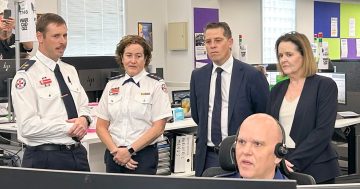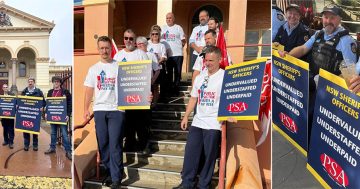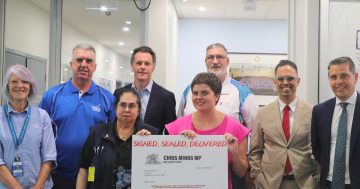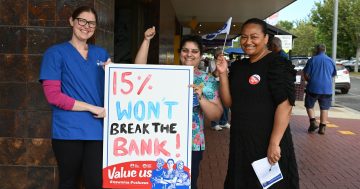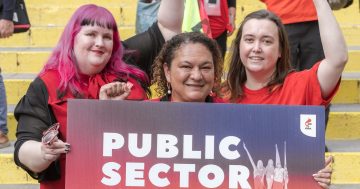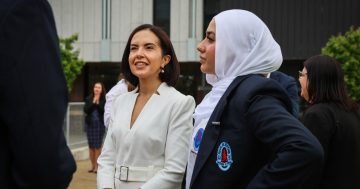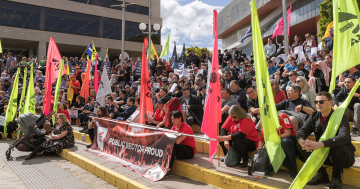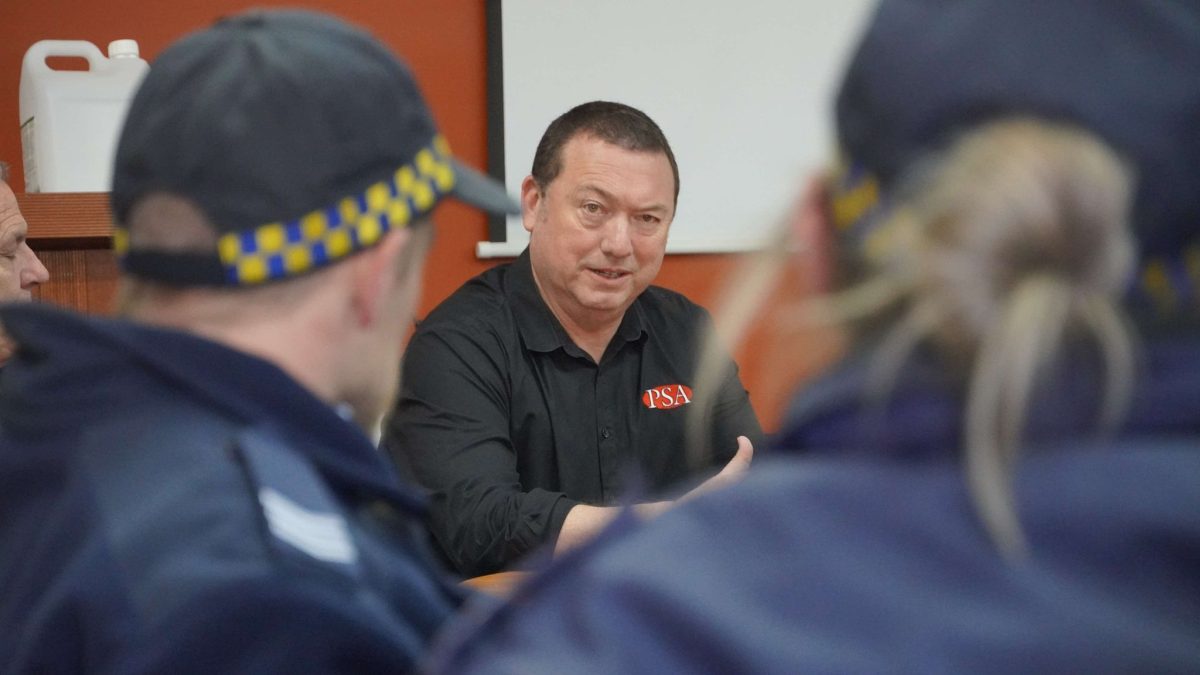
PSA general secretary Stewart Little confirmed the union will now meet with the NSW Government to formalise the pay increase. Photo: Facebook.
Public Service Association (PSA) union members have agreed to the NSW Government’s latest offer affording them a compounding pay rise of 11.4 per cent over the next three fiscal years.
The large majority of respondents ticked off their approval in the PSA’s salaries survey. It will impact more than 90,000 workers who make up nearly a quarter of state-employed staff, including prison guards, school assistants and other essential workers.
PSA general secretary Stewart Little said it had been a long and difficult negotiation, but he was pleased to have achieved a position that had been endorsed by union members.
“Our members are what makes this state tick and yet for a decade under the previous government their contribution was grossly undervalued,” he said. “A three-year deal, with the government’s provisions for inflation, gives our members peace of mind.
“This deal is, at least, a significant advance toward proper recognition of their value.”
The state’s first multi-year pay agreement for Crown employees in more than a decade will be backdated to the first full pay period on or after 1 July. It will involve:
- A 4 per cent 2024-2025 increase in salaries plus 0.5 per cent superannuation
- A 3 per cent 2025-2026 increase in salaries plus 0.5 per cent superannuation
- A 3 per cent 2026-2027 increase in salaries.
Another success for the union was its negotiation of several industry-specific deals, including for child protection workers, fisheries officers, sheriffs, psychologists and NSW Police. The offer also stipulates provisions for inflation.
If the Sydney Consumer Price Index exceeds 3.5 per cent in the second or third year of the deal, it will trigger negotiations for a one-off, non-cumulative, cost-of-living allowance (COLA). If it exceeds 4 per cent, members will receive a $1000 taxable, one-off, non-cumulative cost-of-living adjustment payment, plus superannuation.
As part of the offer, the PSA will negotiate changes to the Managing Excess Employees (MEE) policy to bring it into line with the new Workforce Mobility Placement (WMP) policy implemented late last year. The union claims this has seen great improvements in the retention of public servants affected by workplace change.
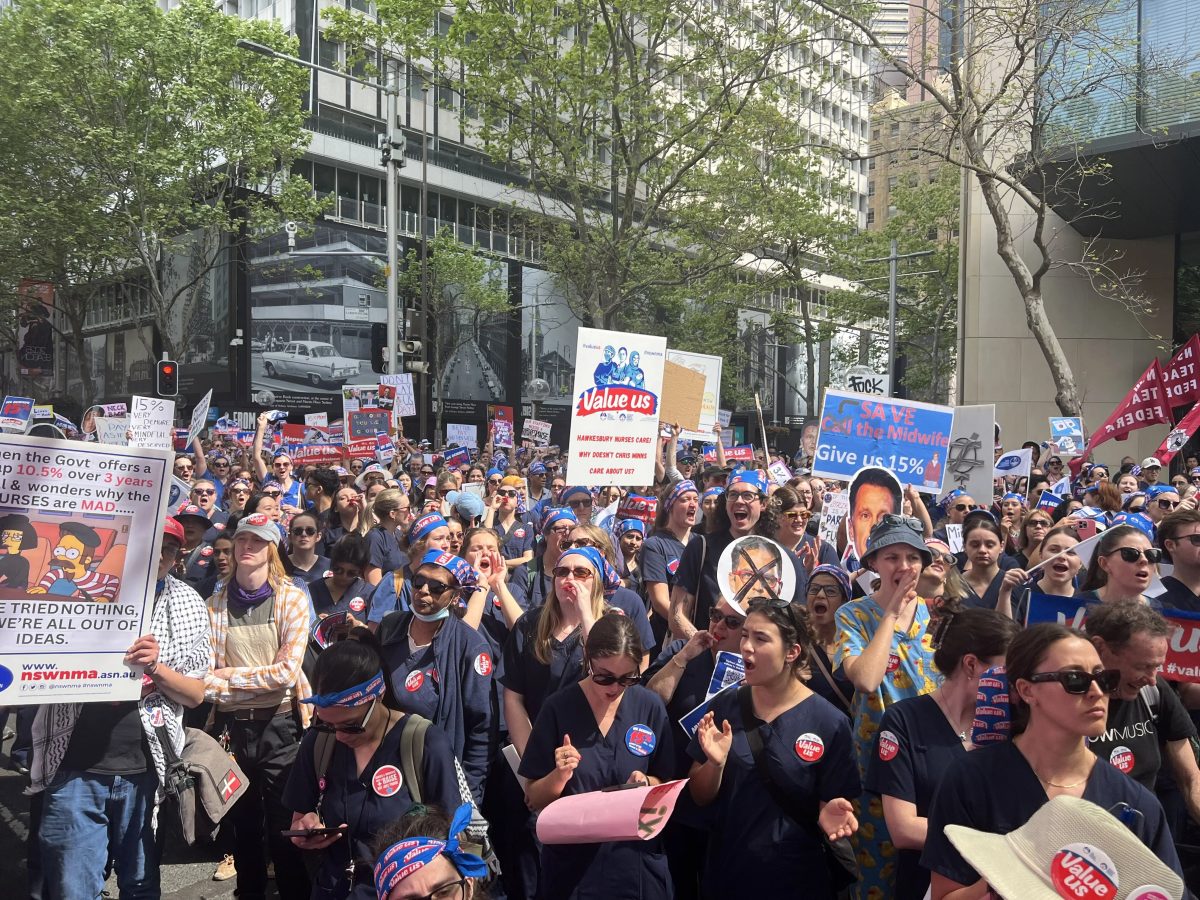
Nurses and midwives stage a protest rally on 24 September after the NSW Government rejected their pay rise demands. Photo: NSWNMA.
At the end of last month, the NSW Government was able to secure a ceasefire in its industrial negotiations with the state’s Nurses & Midwives’ Association (NMA).
Not long after thousands of union members gathered for their last action outside Parliament House, Health Minister Ryan Park confirmed on 30 September that the state and union had come to an agreement.
“As recommended by the Industrial Relations Commission, NSW Health will begin paying an interim 3 per cent wage increase effective 1 July and that no industrial action affecting patients will take place while the discussions and/or arbitration is progressing,” Mr Park said.
NMA acting general secretary Michael Whaites said the government had now agreed to discussions on pay negotiations, including the possibility of a multi-year agreement.
“We are committed to pursuing the best possible pay and conditions outcome for our members, including things like 30 per cent night shift penalty, to bring us into line with other states,” he said.
“I think it’s pretty clear now that the government understands that a better outcome is needed.”
While this “was not the final outcome” the union had sought, Mr Whaites said the NMA looked forward to “robust and productive discussions taking place with the State Government over the coming weeks”.


